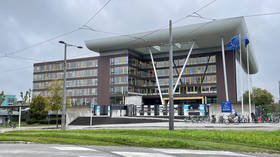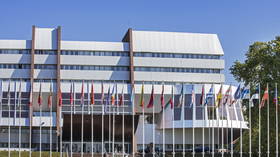Russia withdraws from Council of Europe

After being suspended from the Council of Europe over its military attack against Ukraine, Russia has announced, on Thursday, that it has no wish to be part of a body it describes as subverted to the geopolitical goals of the US.
The Foreign Ministry further claimed that Moscow’s foes are abusing their dominance of the organization and are dismantling a common humanitarian space on the shared continent.
The measure will also mean that Russians no longer have recourse to the European Court of Human Rights, which operates under the Council’s auspices. It also potentially allows Moscow to reintroduce the judicial death penalty. A move which has recently been mooted by former President Dmitry Medvedvev.
At the moment Russian courts may sentence convicts to death for some serious offenses, but no executions are carried out, due to its obligations as a member of the trans-continental body.
“Russia has no intention of tolerating the subversive actions of the collective West, which seek to substitute international law, which the US and its satellites have trampled on, with a ‘rules-based order’,” the ministry statement said.
Moscow won’t be part of a “transformation of the oldest European organization” into “a run-of-the-mill platform where NATO allies … can chant invocations of Western superiority and engage in narcissism,” the short message said.
“Let them enjoy talking to each other, without Russia,” the ministry concluded.
The Committee of Ministers of the Council of Europe suspended Russia’s representation throughout the organization on February 25. The punitive action was taken in response to the Russian military offensive against Ukraine.
Secretary General Marija Pejcinovic Buric said Moscow was still obliged to pay its share of the annual budget to the organization, which amounts to about $37.6 million dollars and was due by the end of June.
Russia was accused, by many Western commentators, of leveraging its financial contributions to the Council to end its five-year suspension after the 2014 reintegration of Crimea. Council members agreed to reinstate Moscow in 2019, much to the chagrin of Kiev. Moscow, a top Council donor, paused its payments in 2017 and promised to pay back what it owed only after its rights were be restored.
Commenting on the news, Russian Senator Andrey Klishas said Moscow should immediately start the procedure of formal withdrawal from the Council of Europe. He added that Russia should “also stop all payments to the benefit of the organization.”
Klishas, who chairs the committee for constitutional law in the upper chamber of the Russian parliament, downplayed the importance of the change. He told journalists, as cited by RIA Novosti, that the court “has always been a subsidiary institution that often passed politicized judgements and overstepped its mandate.”













